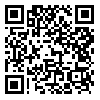BibTeX | RIS | EndNote | Medlars | ProCite | Reference Manager | RefWorks
Send citation to:
URL: http://ijme.tums.ac.ir/article-1-5838-en.html
2- School of Law and Political Science, Shiraz University, Shiraz, Iran
3- PhD Candidate in Criminology and law, School of Law and Political Science, Shiraz University, Shiraz, Iran ,
Physician-assisted suicide is an important, challenging issue in medical ethics, which the right to die is a central point in this issue. Physician-assisted suicide is offered to end intolerable pain and suffering. Although, it is a legal practice in some countries, still it is a challenging and controversial practice in ethical and legal perspectives. It has been argued that based on the principles of medical ethics, physicians should respect patient’s decision, however many ethicists and jurists believe that Physician-assisted suicide is unethical. It should be noted that the main reason for proponents and opponents is based on their interpretation about human dignity. This controversy can be resolved by reference to religious interpretation of human dignity in which asserts that Physician-assisted suicide is against human dignity and respect for human life.
Received: 2016/11/29 | Accepted: 2017/04/29 | Published: 2017/04/29
| Rights and permissions | |
 |
This work is licensed under a Creative Commons Attribution-NonCommercial 4.0 International License. |





